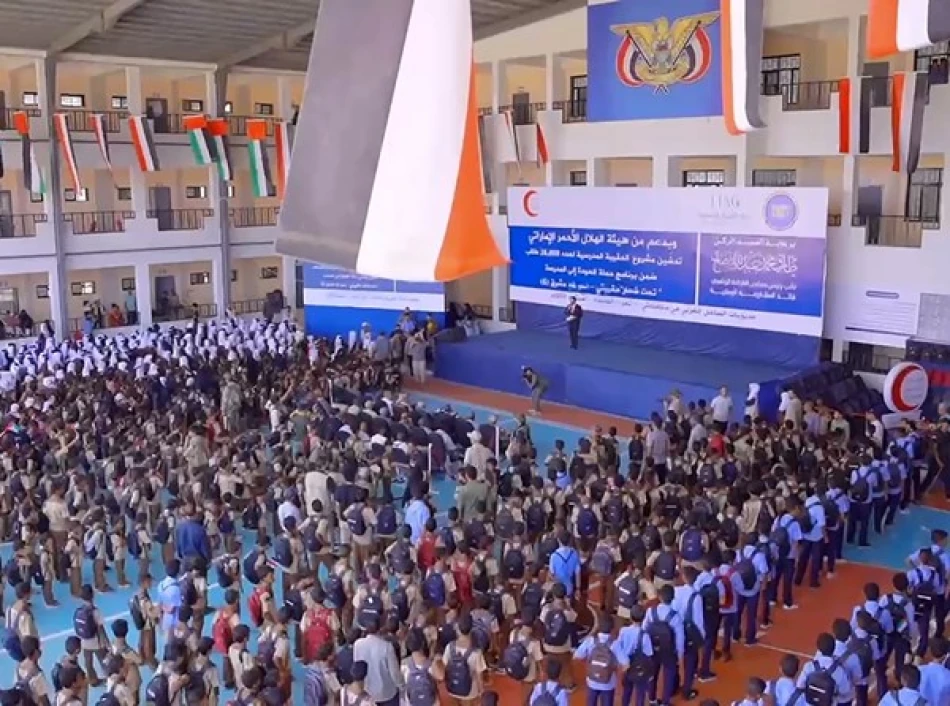
Unveiling New School in Hadramaut, Launching 'School Bag' Initiative Across Yemen
UAE Expands Educational Support in Yemen with New School and Supply Programs
The UAE Red Crescent has opened a new primary school in Yemen's Hadramout province while launching a comprehensive school supplies program across Hodeidah and Taiz governorates, marking the latest phase in the Emirates' systematic effort to rebuild Yemen's fractured education system amid ongoing regional instability.
Strategic Investment in Human Capital
The timing of these educational initiatives reflects a calculated approach to post-conflict reconstruction. By focusing on basic education infrastructure and student supplies, the UAE is positioning itself as a key stakeholder in Yemen's long-term recovery, potentially creating lasting diplomatic and economic ties that extend well beyond the current crisis.
The choice of locations is particularly significant. Hadramout province serves as a strategic corridor connecting Yemen's interior to international markets, while Hodeidah and Taiz represent critical population centers that have borne the brunt of Yemen's humanitarian crisis since 2014.
Beyond Immediate Relief
Building Institutional Capacity
Unlike traditional humanitarian aid that addresses immediate needs, educational infrastructure investments create lasting institutional frameworks. The new school in Hadramout will likely serve hundreds of students annually for decades, while the school supply program ensures continuity of education during the crucial early academic months.
Regional Soft Power Strategy
This educational outreach mirrors successful soft power strategies employed by other Gulf states. Similar to Saudi Arabia's educational investments in Southeast Asia or Qatar's university partnerships across the Middle East, the UAE is leveraging education as a tool for regional influence and stability.
The approach contrasts sharply with purely military or economic interventions, offering a more sustainable path toward regional integration and cooperation.
Economic and Political Implications
For international investors and regional governments, these educational initiatives signal the UAE's commitment to Yemen's long-term stability rather than short-term crisis management. This suggests potential opportunities in reconstruction sectors and indicates that the Emirates views Yemen as a viable economic partner rather than merely a humanitarian obligation.
The focus on multiple governorates also demonstrates an understanding that Yemen's recovery requires broad-based support rather than concentrated efforts in single regions. This comprehensive approach could accelerate the country's return to political and economic stability, creating new markets and trade opportunities across the Arabian Peninsula.
Measuring Success
The true impact of these educational investments will become apparent in enrollment rates, literacy improvements, and the eventual integration of educated Yemeni youth into the regional economy. Unlike immediate humanitarian relief, educational infrastructure creates measurable long-term outcomes that can justify continued investment and expansion of similar programs.
As Yemen approaches another academic year under challenging circumstances, these UAE initiatives represent a pragmatic bet on education as the foundation for sustainable peace and prosperity in one of the region's most strategically important countries.
Most Viewed News

 Layla Al Mansoori
Layla Al Mansoori






